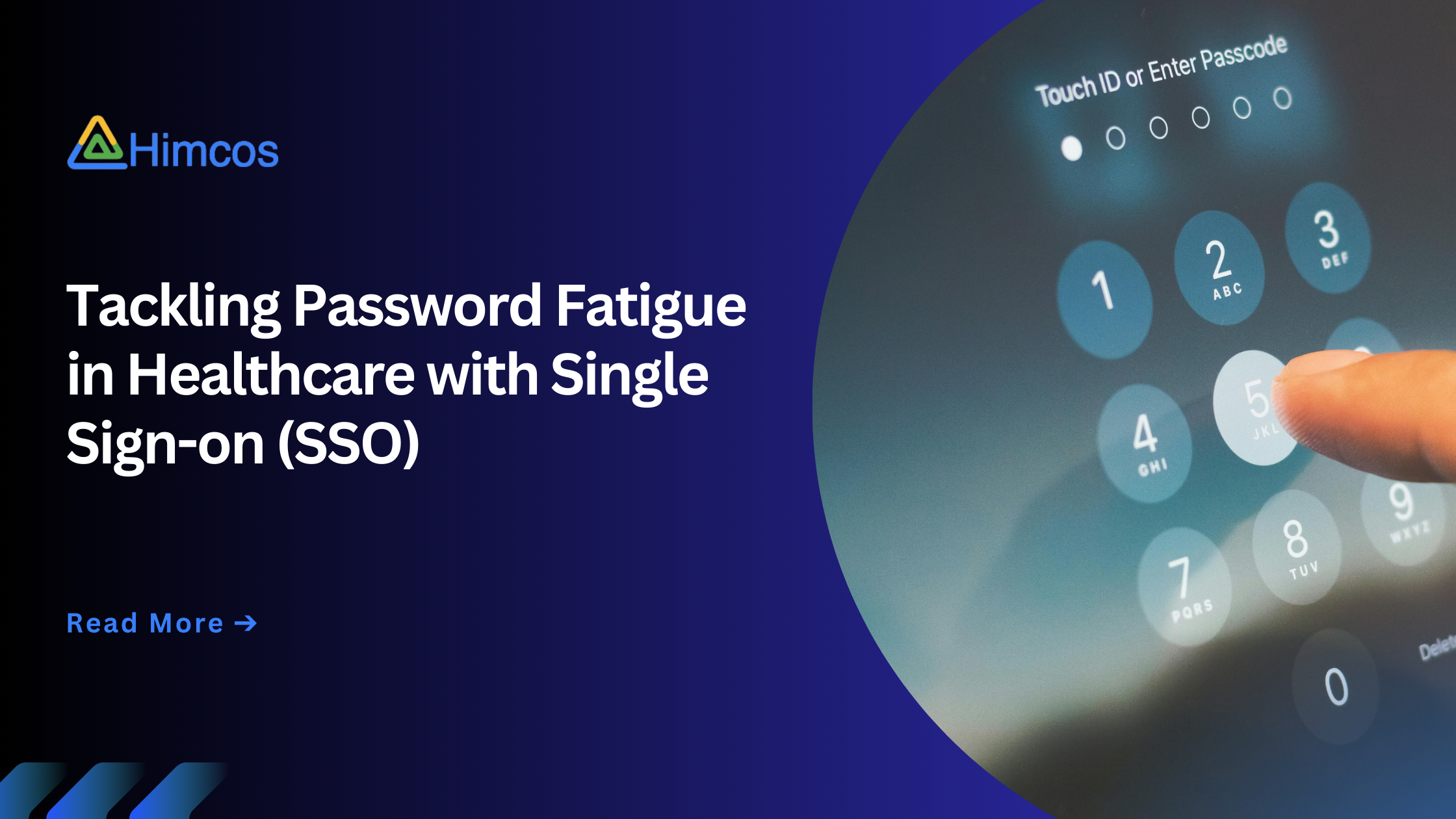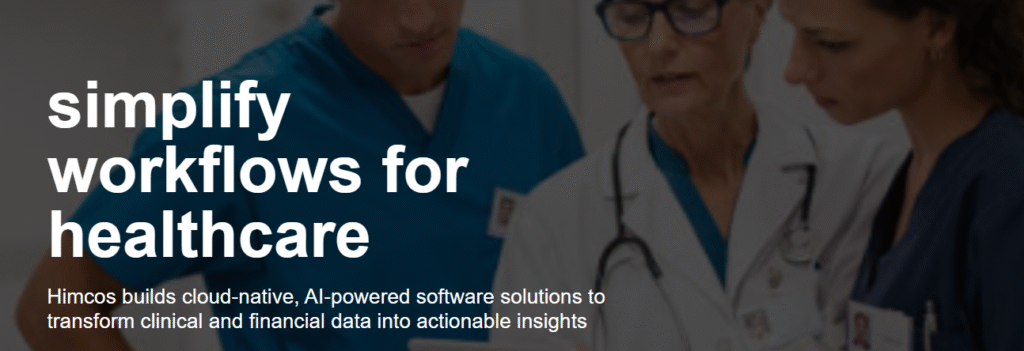How Single sign-on (SSO) simplifies Password Fatigue in Healthcare?

Password fatigue in healthcare is the most common problem which makes a medical professional juggling here and there. Every moment is critical in hospitals, which makes password management one of the most frustrating IT problems. If you’re part of healthcare IT, or simply use hospital systems, you know the constant struggle of managing numerous logins for EMRs, lab systems, radiology platforms, medication dispensing units, and even the HR systems.
This blog post is not about critiquing passwords. Instead, let us discuss what hospitals lose when medical users be it a medical professional or someone from the staff suffer from password fatigue, not only in finances, but in time, mental effort, and increased risk. Most importantly, let’s look at how Single Sign-On (SSO) eliminates these issues effortlessly.
Table of Contents
What is Password fatigue in healthcare?
As the name suggests, password fatigue is the condition of users feeling exhausted from managing multiple logins and passwords. In the case of healthcare professionals, who are always on the go, transitioning from one system to another dynamically and next expected to WIP, this fatigue isn’t merely a headache. It has consequences. Increased errors, time lags, dangerous workarounds to write passwords on paper, or defaulting to password reuse fall within this category. Everything needing to be remembered and mentally reset interrupts workflow and drains focus, which during critical time periods is devastating to their efficiency.

The Real Hidden Costs
1. Wasted Time
Every time a doctor or nurse goes through the steps of remembering log details, calling the help desk, or resetting the password, they’re pulling away from providing care to patients. While these delays may seem minor, as weaved through days, weeks, and then a year, they are compounded and transform into a loss that’s alarmingly significant. Think about a physician treating hundreds of unique patients in a single day. The productivity lost while trying to step through each login Is diminished must be agonizing. In healthcare it’s all hands on deck, meaning wasted minutes pose a significant threat.
2. IT Helpdesk overLoad
It’s busy work. It’s all rote: due to Password Fatigue in Healthcare, there’s a colossal waste of time and effort that lowers both the IT team’s productivity and morale. Helpdesk employees who could be working on system optimizations, training new staff, or creating useful new system integrations are instead resolving monotonous, repetitive login problems. In larger hospitals, this equates to password reset tickets numbering in the thousands annually. Performing these redundant tasks not only stifles innovation but also fosters burnout and dissatisfaction with IT support jobs.
3. Critical Security Risks
Nobody wants to admit it this about Password Fatigue in Healthcare, but let’s be honest; when people become frustrated with a task, they tend to cut corners. They password-enable their accounts in a single password – dangerous for any sticky note and password used to lock encrypt every door, use passwords like “passwords123,” and share credentials. These practices are beg to be exploited. When one account is compromised, a chain reaction becomes easily possible. In a healthcare setting where PHI (protected health information) resides, careless weak password practices that stem from exhaustion pose dire risks like data leaks, ransomeware threats, hefty fines, or turning off critical systems.
4. Compliance Issues
In healthcare, and especially in the HIPAA arena, compliance is mandatory. There are legal access controls with security audits mapped out in clear detail. Exhausted password recall always makes satisfying requirements harder and creates a scenario of Password Fatigue in Healthcare. Users circumvent login requirements and IT puts band-aids on persistent problems, resulting in muddy audit trails. Them showing compliance in external audits or internal scrutiny gets challenging. Violating boundaries turns out to be expensive in reputation and finances.
Role of SSO (Single Sign On) in cutting all this

What exactly is Single sign-on? (SSO)
Single Sign-On (SSO) refers to the method of authenticating a process to let one use several different programs or systems by logging on to a single user ID and password. Rather than logging in every hospital system separately, SSO in hospitals functions by a central identity provider that manages authentication and confirms the user is authorized to use each system. It enhances security, lessens login fatigue, and conserves time by preventing repeated logins across platforms. For hospitals, it also enhances compliance by making access controls simpler and audit trails easier to maintain.
1. One Login to rule them all
With SSO in hospitals, clinicians are able to log in solely once at the start of their shift. This login extends across EMR, pharmacy, imaging systems, and even internal messaging tools. Done are the days where clinicians had to log in and out 20 times during the day. This helps clinicians better focus and maintain flow throughout the day, particularly in emergencies. Disrupted workflows are no longer the case; frustrated logins are a thing of the past.
2. Audit trails made easy
Because everything comes through one system, it’s simpler to monitor who did what and when. Which means easier audits and improved control. You can report in minutes, catch anomalies before they turn into incidents, and have confidence that your organization is complying with data governance. Transparency and accountability are inherent, not added on.
3. Top notch security
You can complement SSO with multi-factor authentication (MFA) for added security. It assists with compliance and minimizing human error. If authentication is centralized and optimized, access control is more trustworthy. You can mandating complex password policies, track usage more intuitively, and block unauthorized access, all without creating additional end-user burden.
4. Lower Helpdesk Load
Hospitals that have SSO in place indicate steep declines in password reset requests. That releases the IT staff to work on more important tasks. With fewer support tickets to handle, IT staff can work on long-term infrastructure development, cybersecurity, and training. In the long run, that means a more resilient and agile IT department that directly benefits strategic objectives.
5. Improved Staff Experience
SSO in hospitals removes Password Fatigue in Healthcare. So, no more remembering six passwords or wondering which one they used last week. When technology accommodates the user’s needs rather than vice versa, adoption rates skyrocket. Nurses and doctors feel empowered rather than encumbered by their tech stack, boosting morale and digital tool engagement hospital-wide.

How does Himcos help?
At Himcos, we help hospitals eliminate password fatigue by implementing secure, scalable Single Sign-On (SSO) systems built for healthcare environments. Whether you’re running multiple EMRs, lab tools, HR platforms, or medication dispensing systems, SSO ensures your teams log in once and access everything they need fast. We integrate SSO with existing infrastructure, layer it with multi-factor authentication, and ensure full compliance with HIPAA and other security mandates.
The result? Fewer helpdesk tickets, streamlined audits, and smoother daily workflows. IT teams spend less time on password resets and more time optimizing systems. Clinicians move through their day without login friction, focusing more on care and less on credentials. With Himcos, hospitals don’t just improve security they improve staff morale, save time, and enhance the digital experience across the board. From early assessment to deployment, we tailor our SSO solutions for how your hospital actually operates.


